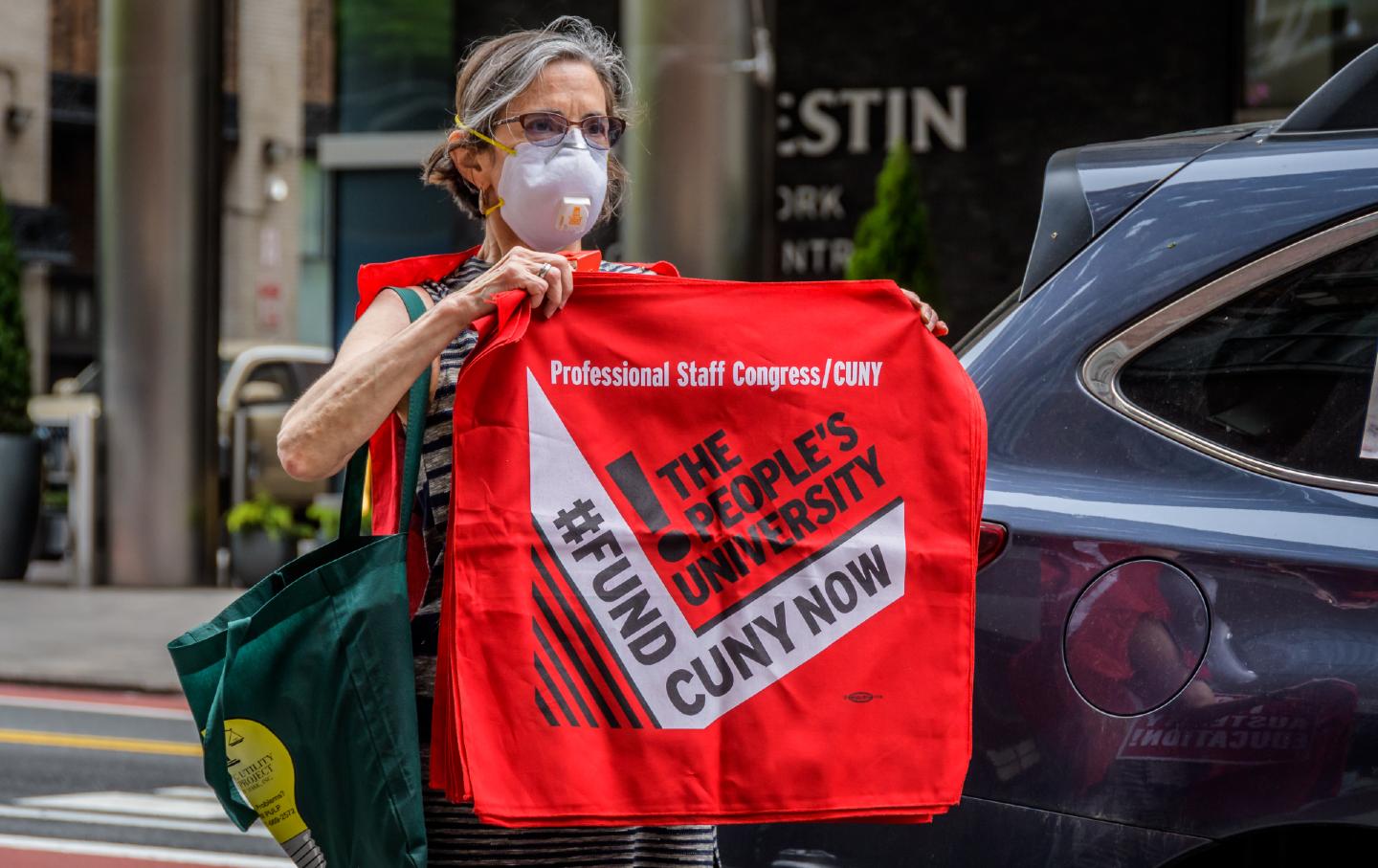Tough times are ahead. As a society, we are currently in the midst of two crises: combating systemic racism in our country and COVID-19, with both having subsequent consequences on our lives.
Even in the midst of all this, CUNY is still facing potential budget cuts as the state continues to constantly reduce its funding. The state will have an approximate budget deficit of $13 billion. As a result, it’s anticipated that CUNY Queens College will face a cut nearing 10%. This translates into potentially major layoffs & tuition hikes. Additionally, this means that class sizes will increase, the amount of sections for a course will be reduced, and the upper level electives for various majors may not be offered.
Faculty within Queens College have been organizing under the group name “QC Adjuncts Unite.” The organization has been fighting for adjunct rights since 2018 and is currently working on mobilizing adjuncts and other members of the college community to fight against the recent budget cuts and tuition hike.
Professor Jane Guskin, an adjunct professor for the Urban Studies department at Queens College, voiced her concerns over the situation. Guskin explained, “when courses are cancelled and adjuncts are laid off–“non-reappointed” in CUNY’s bureaucratic term–adjuncts lose income and health insurance in the middle of a pandemic, and students won’t be able to get the courses they need to make progress toward their degrees.”
Guskin also made note to mention the consequences of course sections being reduced, stating, “QC is trying to save money by making class sizes bigger and that means students will get less attention from faculty, and adjuncts will be more stressed out and overworked.”
The CUNY-wide student governance body, known as University Student Senate (USS), has been working amidst the pandemic to combat the budget cuts. Legislative Director for the University Student Senate, Smitha Varghese, explained, “The impact of these budget cuts are that thousands of adjuncts will inevitably be laid off, therefore reducing classes and limiting course offerings, but also increasing the size of classes to the point that they’re overcrowded. In addition, if the state and city cut back on funds, yet enrollment continues to increase, it will be the students who continue footing the bill (as they are this June 29th when the Board of Trustees vote to raise our tuition and fees by $320).”
Varghese also expressed concerns about academic programs being cut, stating, “Vital programs like CUNY ASAP are on the chopping block. The Mayor is proposing to cut the program by $20 million, which means that CUNY may not be able to take in a new cohort of students to the ASAP program for the Academic Year of 2020-21.”
When asked about how she would encourage CUNY students to lobby, Varghese responded, “Get a Twitter! Politicians HATE Twitter.” She also wanted to remind students that the University Student Senate is organizing their first CUNY-wide in-person action since the pandemic hit NYC. The event is scheduled for June 27 at 12-2 PM. Varghese adds, “We’ll be marching from Brooklyn Borough Hall to City Hall demanding NYC to fund CUNY, not cops! Make a sign, grab a mask, and show up!”
It should be noted that the USS and its engagement with the CUNY campuses has been minimal, even prior to the pandemic. Corrinne Greene, a recent graduate of Brooklyn College contends that, “University Student Senate is right in the regard that if more students were involved we would stand a fighting chance.” Greene then adds, “There’s nothing that I have been able to do [as a student leader] without collaboration,” while emphasizing the need for a group effort to protect the quality of higher education.
One can only hope that access to higher education doesn’t waiver during this unprecedented time. It is also hopeful that the quality of education doesn’t suffer as a result of the course changes being mandated. These two issues could have serious consequences in the long run, completely putting students’ academic careers at stake.











